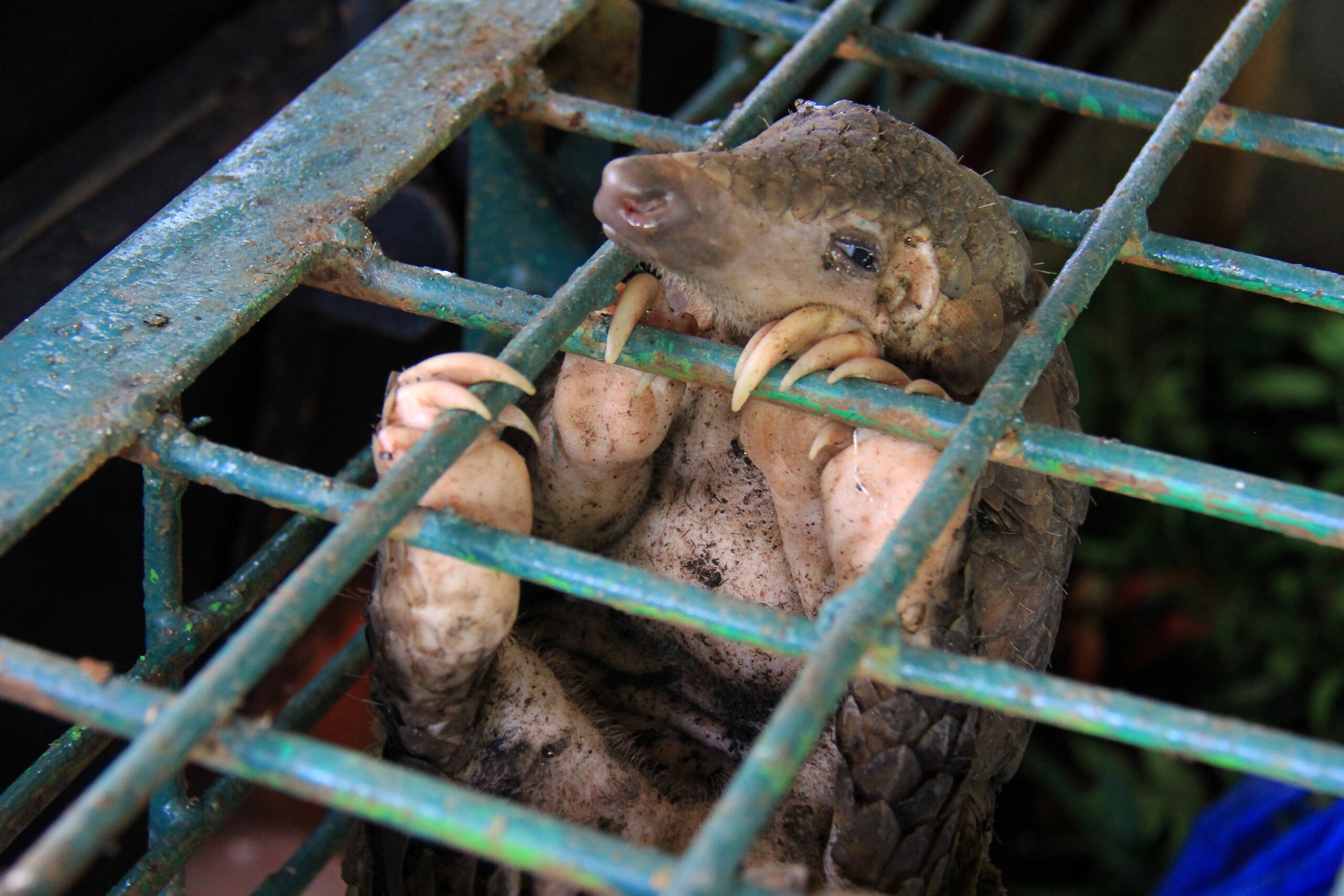close
What is Pelorus Foundation?
Our mission is to champion innovation and act as a catalyst, empowering individuals and local communities to preserve and protect the world’s wildlife and wild places for future generations.
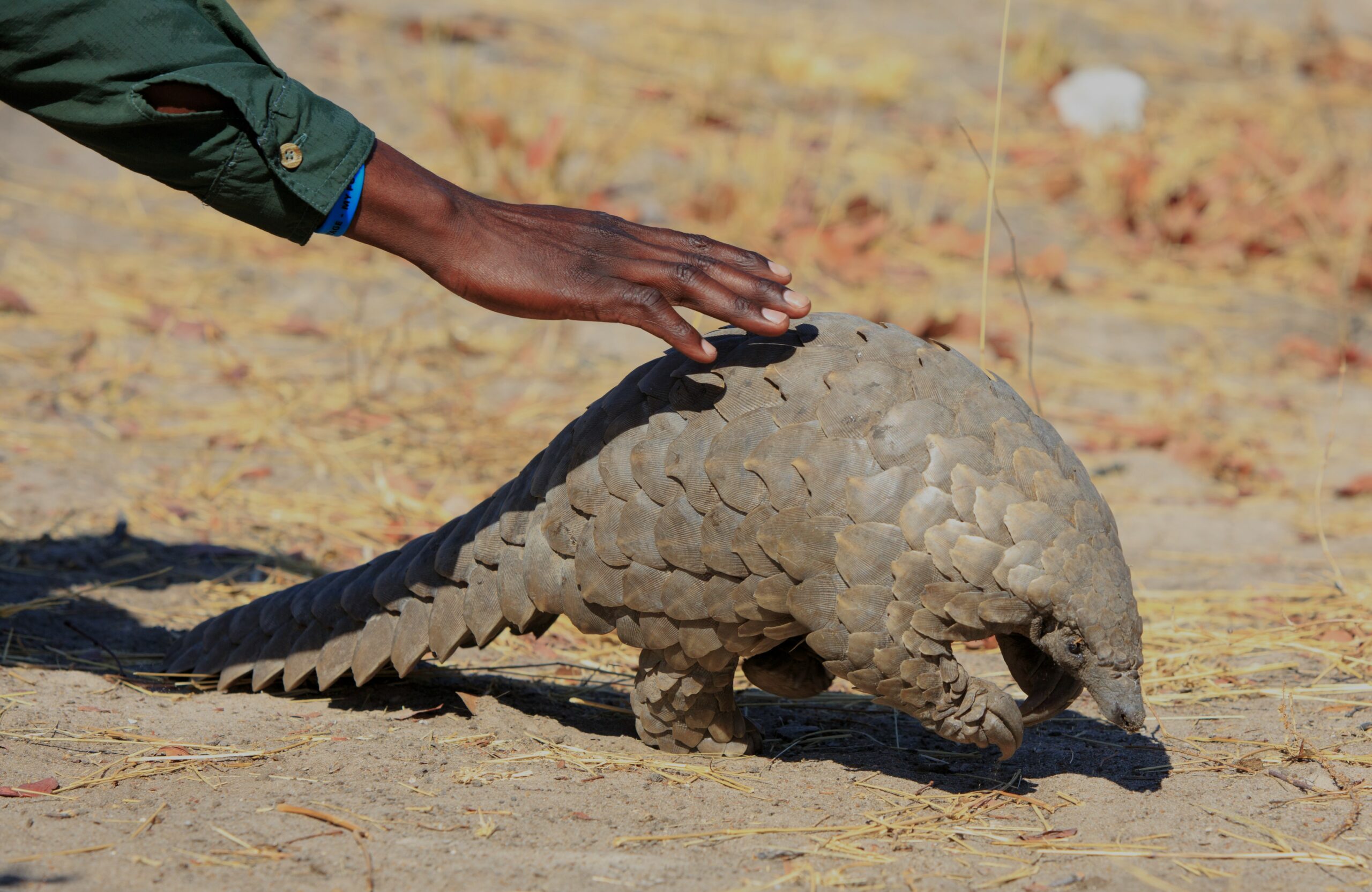
Able to withstand the bite of a lion, but not the hand of a human. To defend itself when facing danger, the pangolin curls up into a tight ball and their scaly armoured exterior is strong enough to withstand a lion’s bite. But despite evolution’s adaptations to keep this creature safe from natural predators, the pangolin’s defence mechanism makes them dangerously vulnerable to poachers.
In the first half of 2019 alone, nearly 200,000 trafficked pangolins were seized by customs officials, driven by a demand for pangolin products which is threatening these unique mammals with extinction. All eight pangolin species are on the IUCN Red List, threatened with extinction. Whether killed for their scales which are ground into powders for Chinese medicines, or served as a delicacy, consuming pangolin is seen as a sickening statement of wealth and privilege in China and other East Asian nations. With the four Asian pangolin species being hunted to near extinction, the four African species are currently being poached in record numbers to supply the current East Asian demand. In the past decade, more than one million pangolins were trafficked, with 2019 data indicating that a pangolin is poached every three minutes (WWF).
Our mission here is clear, prevent the torment and torture of the pangolin in the illegal wildlife trade – and in doing so, stop the pangolin from being driven to extinction. Working with our partners on the ground, we are taking a multipronged approach to conserve the pangolin, addressing three crucial areas.
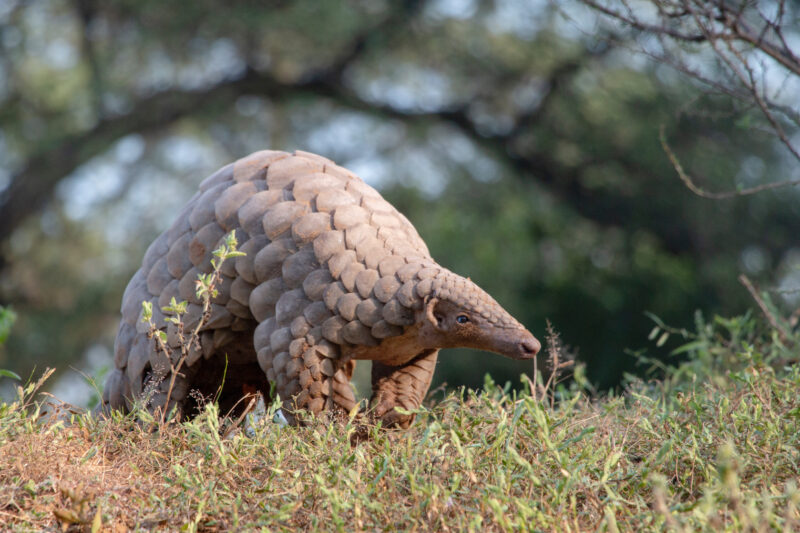
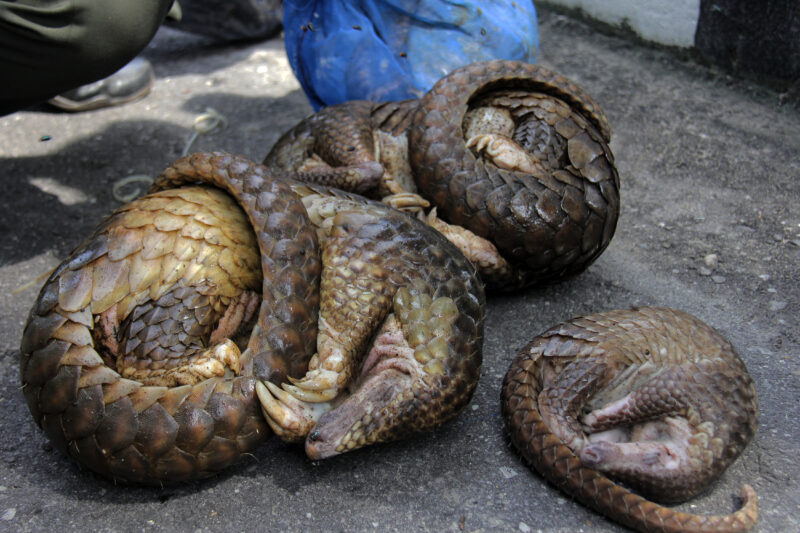
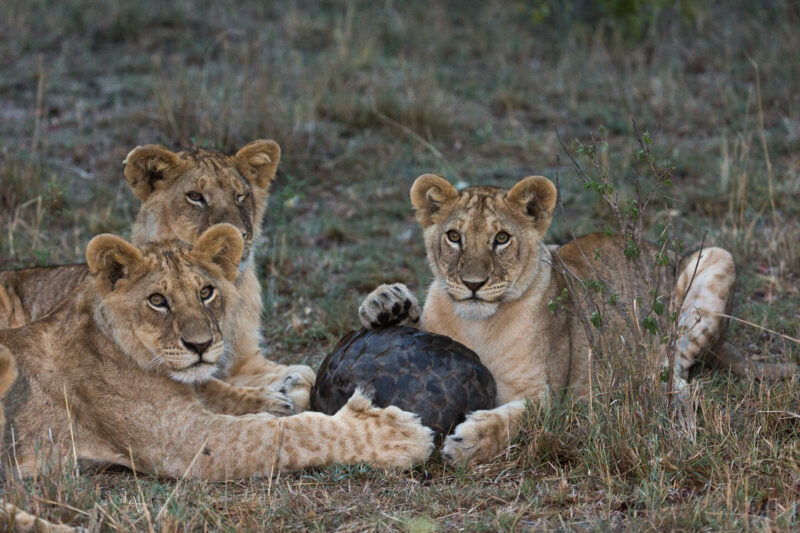
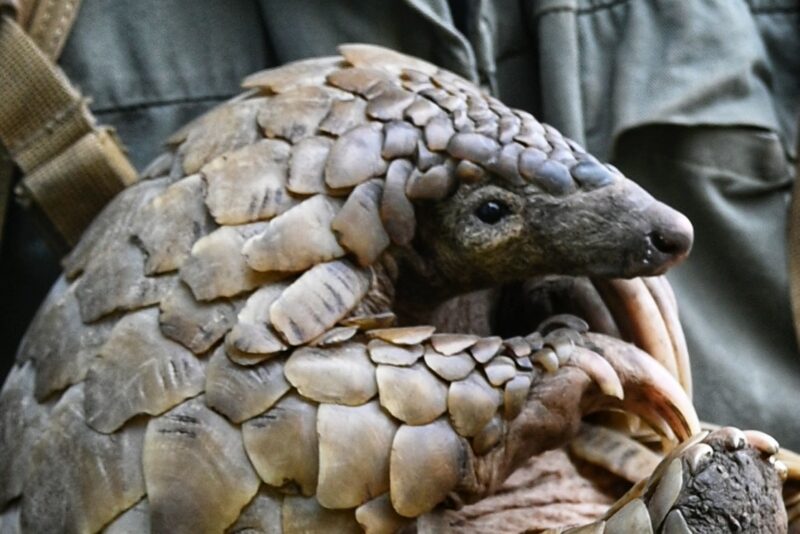
Number one, leading pangolin conservation-based research.
Despite the pangolin being one of the world’s most trafficked mammal, little is actually known of this shy creature. This means that even when pangolins are rescued from the wildlife trade, the death rate following is extraordinarily high. This is due to a lack of knowledge in how to handle, look after and rewild the pangolin. By building data collection into each day, we’re supporting our partners to develop and promote resources to guide rescuers on how to reduce the mortality rate of pangolins.
Number two, offering the local community opportunities through conservation.
From employing local community members as Pangolin Rangers, to research focused internships and subsidised university places, we’re helping to place local people at the heart of pangolin conservation projects.
Number three. Raising awareness of the pangolin, and exploitation of.
A desire to protect often derives directly from understanding the cause. By educating people on the wildlife trade, we are working with our partners to instil a sense of guardianship as far as and wide as possible.
We are working together with Namibian NGO, Pangolin Conservation and Research Foundation (PCRF), as they build their strategy and plans, including PCRF’s future development project to create a pangolin rehabilitation centre. Through employing local community members to protect pangolins, to forming one of the first comprehensive conservation-based research databases on the species, your donation will play a critical role in fighting wildlife crime.
Please help save the world’s most exploited animal, thank you.
